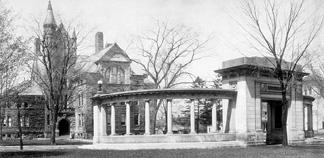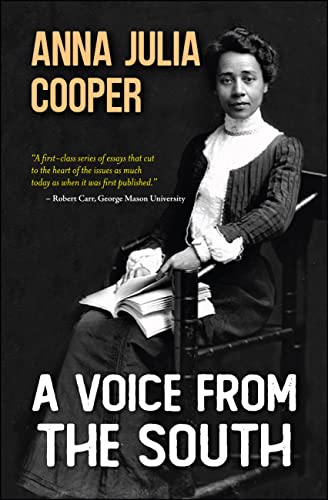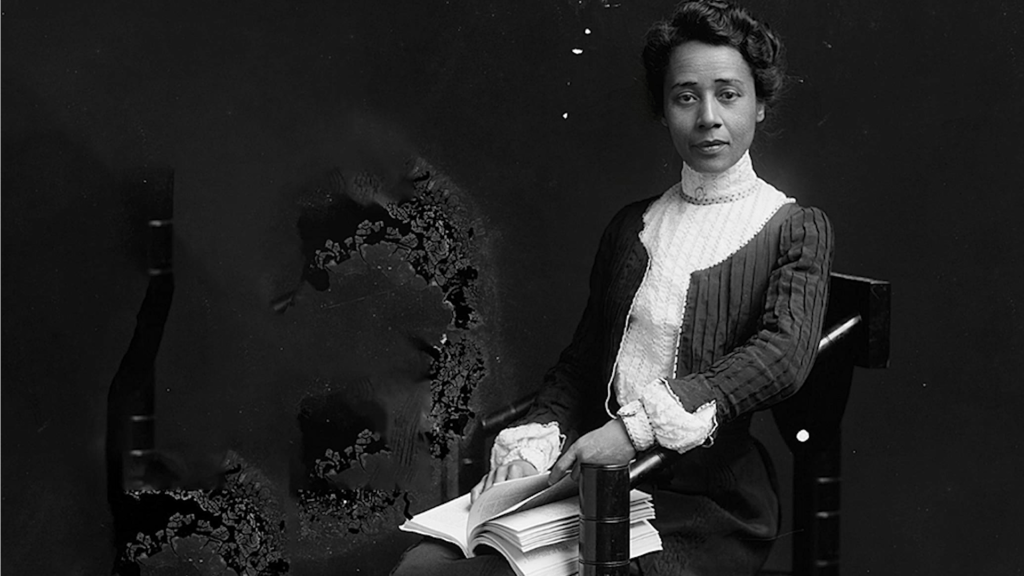*Ad Free Videos for as little as $1/Month Subscription!!*
The Unbelievable Story of Anna Julia Cooper: From Slavery to PhD!
By Darius Spearman (africanelements)
About the author: Darius Spearman is a professor of Black Studies at San Diego College, where he has been pursuing his love of teaching since 2007. He is the author of several books, including Between The Color Lines: A History of African Americans on the California Frontier Through 1890. You can visit Darius online at africanelements.org.
Introduction: A Remarkable Journey
Anna Julia Cooper’s life is a testament to determination, intellect, and resilience. Born into slavery in 1858, she emerged as one of the most prominent African American scholars of her time. Her story transcends personal triumph, reflecting the broader struggle for equality and education in the African American community. This article explores her early life, educational pursuits, and lasting impact on Black Studies.
Early Life: From Slavery to Freedom
Anna Julia Cooper’s birth in Raleigh, North Carolina, marked the beginning of a life enslaved. Her early experiences shaped her understanding of race, gender, and class in America. After the Emancipation Proclamation, she passionately pursued education, a rare feat for women of her time, especially Black women. Her journey from slave plantations to the classroom resonates with the broader narrative of life on the slave plantations of the Deep South. In 1867, two years after the Civil War ended, Anna began her formal education at Saint Augustine’s Normal School and Collegiate Institute, a facility built for newly freed men and women.
Education and Advocacy: Breaking Barriers

In 1877, Anna Haywood married George A.G. Cooper, a theology teacher at Saint Augustine’s. After her husband’s death in 1879, Cooper relentlessly pursued a college degree at Oberlin College, earning a BA in 1884 and a Master’s in Mathematics in 1887. She later became the fourth African American woman to earn a Ph.D. Her advocacy for women’s rights and education established her as a leading voice in the fight for equality, laying the foundation for future generations and influencing educational policies that addressed racial inequality in education.
Cooper’s life shines as a beacon of hope, symbolizing what one can achieve against all odds. Her story intertwines the pursuit of knowledge with the fight for equality, illustrating how determination can change history. Stay tuned as we delve deeper into her contributions, writings, and legacy.
Writings and Philosophy: A Voice for the Voiceless

Revolutionary in both intellectual depth and focus on gender and race, Cooper’s writings include “A Voice from the South”, one of the first articulations of Black feminism. She argued that liberating Black women was central to liberating the entire Black community. Her call for equal education for women and her assertion that educated African American women were vital for uplifting the entire race gained national attention. Cooper began lecturing across the country on topics such as education, civil rights, and the status of black women, laying the groundwork for the future movement for women’s and gay liberation.
A Champion for Education
Cooper’s unwavering belief in education as empowerment led her to serve as the principal of M Street High School in Washington, D.C. She implemented a rigorous curriculum that challenged her students to excel, aligning her educational philosophy with the struggle for racial diversity in higher education. However, she resigned in 1906 after the white Washington, D.C. school board disagreed with her college preparation approach for black students.
Legacy: An Enduring Impact
Cooper’s profound and far-reaching legacy includes advancing African American educational opportunities and co-founding organizations to promote black civil rights causes. She helped establish the Colored Women’s League in 1892, joined the executive committee of the first Pan-African Conference in 1900, and created “colored” branches of the YWCA and YMCA to support young black migrants moving from the South into Washington, D.C.
Her writings and ideas continue to inspire, paving the way for scholars and activists and contributing to movements like the Harlem Renaissance. Her life’s work stands as a testament to the astonishing strength and resilience of Black individuals, resonating today.
A Pioneer in Intersectionality: Understanding Race and Gender
Cooper’s groundbreaking insights into race and gender laid the groundwork for “intersectionality”, shaping the civil rights movement and conflicting ideologies. Cooper’s radical feminism argued that liberating Black women was a human rights issue, resonating with the broader struggle for women’s rights within the Civil Rights Movement.
A Lasting Voice: Cooper’s Influence Today
Cooper’s influence extends beyond her lifetime, inspiring scholars and activists with her emphasis on education, gender equality, and racial justice. Her indelible mark on Black politics continues to guide those working to ensure equality in education.
Cooper’s journey from slavery to a Ph.D. symbolizes triumph over adversity. Her life reminds us that barriers can be broken and that education and advocacy can transform lives. Her rich tapestry of achievement, struggle, and inspiration is more than a historical footnote; it’s a living legacy that continues to inspire and challenge us. Whether in the classroom, writings, or advocacy, her voice resonates, reminding us of the power of education, equality, and human strength. Her story is a beacon for all who seek to understand America’s complex history.
Conclusion: A Life of Inspiration

Anna Julia Cooper’s life is a story of triumph, intellect, and activism. Her journey from slavery to becoming a leading intellectual voice is a testament to her determination and brilliance. Her legacy continues to inspire, and her writings continue to be a source of insight and inspiration.
A Beacon for Future Generations
Cooper’s story is a beacon for future generations. Her life is a reminder that obstacles can be overcome, that education can transform lives, and that one person’s voice can make a difference. Her legacy is a part of the rich tapestry of Black history, and her voice continues to resonate in the ongoing struggle for equality and justice.
Anna Julia Cooper’s life and work are a profound reminder of the power of determination, the importance of education, and the enduring struggle for equality. Her story is not just history; it’s a living legacy that continues to inspire and challenge us to think deeply about race, gender, and justice in our world today. Her voice is a timeless call to action that continues to echo in the hearts and minds of those seeking a more just and equitable world. Her story is the unbelievable story of a life well-lived, a story that continues to unfold in the lives of those she continues to inspire.
